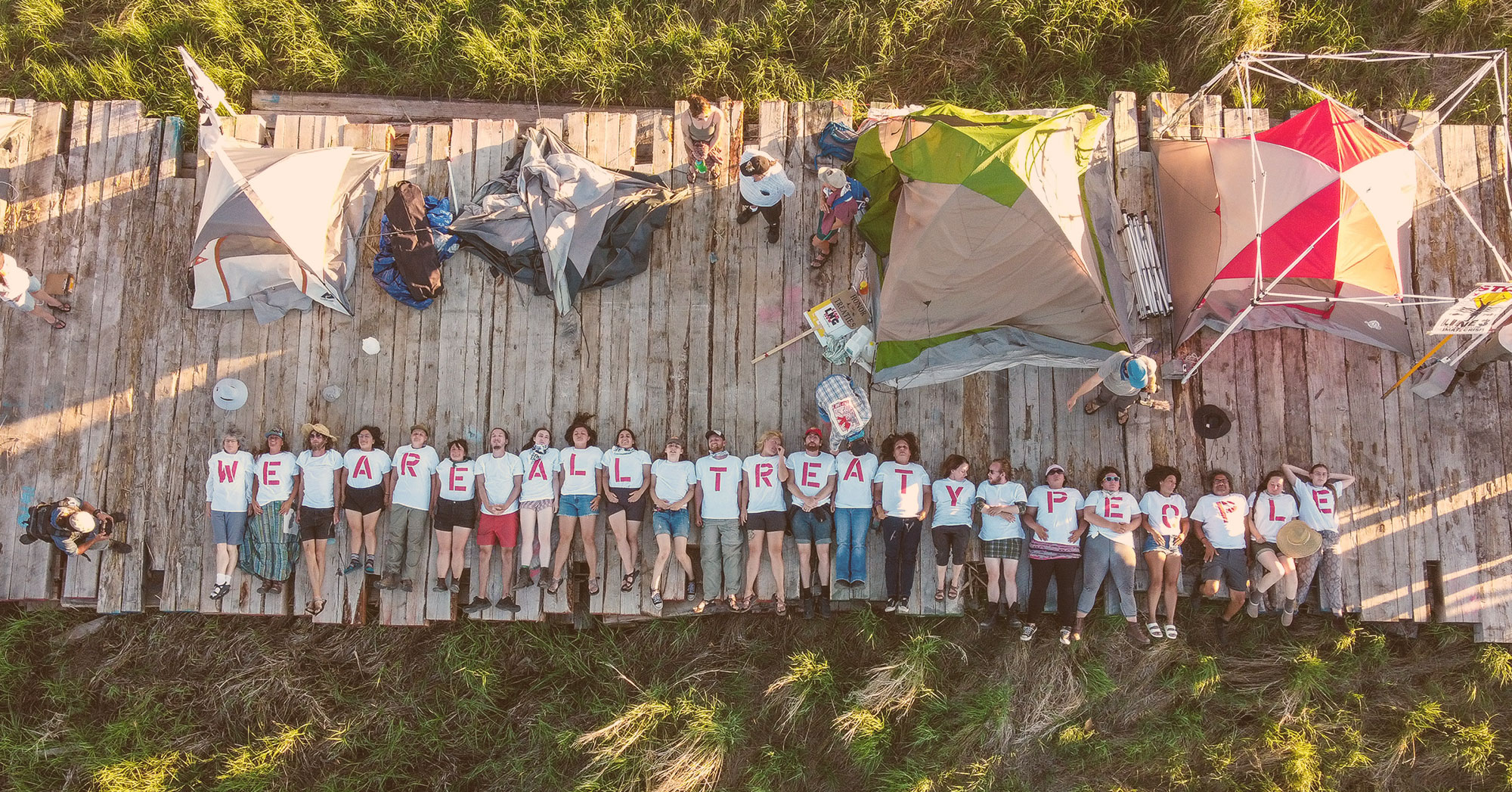We Are All Treaty People
Article VI of the U.S. Constitution states that Treaties are the “Supreme Law of the Land” and requires all Federal and State judges to abide by their terms. Prior to the Revolutionary War colonial British, French, Spanish & Russian governments engaged in extensive treaty-making relationships with the Indigenous Nations of Turtle Island – what we now call North America.
Between 1778 and 1871, the newly-formed United States entered into its own series of treaties to legitimize the influx of immigrants wanting to settle, homestead, and make a living.
The Anishinaabe are just one of the many Sovereign Indigenous Nations who signed treaties with the U.S. Government outlining provisions for both sides. In these particular treaties, the Anishinaabe ceded lands for settlement, timber and mineral harvest while reserving their rights to continue to hunt, fish, gather, engage in religious ceremony, and otherwise use and occupy the ceded lands as they had done since time immemorial.
At the time of treaty signing, from the Anishinaabe worldview it would have been unthinkable to engage with the land in the ways that have come to pass. The Anishinaabe way of life interacts harmoniously with the natural world in a way that staunchly differed from the outlook of the incoming European settlers. Philosophies such as “Private Property” and the “owning of land” were non-existent for the Anishinaabe. The clearcutting of old-growth forests was not a known practice of engaging with the land. The harvesting of animals such as beaver and mink to near extinction for the purpose of commercial gain was similarly an unthinkable violation of natural law.
When the Treaty of 1855 was signed it would have been impossible to foresee—for either Native or non-Native signatories—a project like an oil pipeline being proposed. This was an era of whale oil lamps before the modern fossil fuel industry even existed.
While the world has changed, the treaties have not. They are living documents that require both sides to honor and uphold their obligations and responsibilities.
In 1991, Enbridge Energy’s Line 3 pipeline ruptured near Grand Rapids, Minnesota, spilling 1.7 million gallons of oil, much of which entered La Prairie River which is a tributary of Mississippi. This was the largest recorded inland oil spill in United States history.
In 2002, Enbridge Energy’s mainline system spilled 252,000 gallons of crude in Cohasset, MN.
In 2010, Enbridge Energy’s Line 6B ruptured, which spilled over 1 million gallons of diluted bitumen (dilbit) into the Kalamazoo River.
These are just a few of Enbridge’s spills. Between 1991 and 2013, more than one thousand Enbridge spills were recorded as dumping a total of 7.4 million gallons of oil into the environment. This averages to 71 spills and 500,000 gallons leaked per year. That’s more than one oil spill every week for the last 15 years.
Given this track record, it was clear that Enbridge’s proposed Line 3 “replacement project” would pose an imminent threat to the Land, Water & the ways of life—not just for the Anishinaabe, but for ALL of us.
During every step of the permitting process for the Line 3 pipeline, various Indigenous organizations and Tribal Governments within the geographic bounds of Minnesota intervened against the project arguing that it would violate the terms of the Treaties and the Federal trust responsibility of the U.S. Government.
Various State and Federal agencies—the Department of Natural Resources (DNR), Pollution Control Agency (MPCA), Public Utilities Commission (PUC), Army Corps of Engineers and others—rejected these arguments in direct violation of the US Government’s Federal Trust Responsibility, Article VI of the Constitution, and even Minnesota’s own Executive Order 19-24 affirming the Government to Government relationship between Minnesota & Tribal Nations mandating consultation, coordination & cooperation.
It is the duty of a people to hold its government accountable, both at a State and Federal level.
In June 2021, people from all walks of life came together on Mississippi River directly over the proposed drill site for the Line 3 oil pipeline by invitation of Sovereign Anishinaabeg to hold ceremony and honor the treaty obligations shared between Native and non-Native treaty partners in the face of imminent destruction to the Land, Water & the Anishinaabe way of life.

